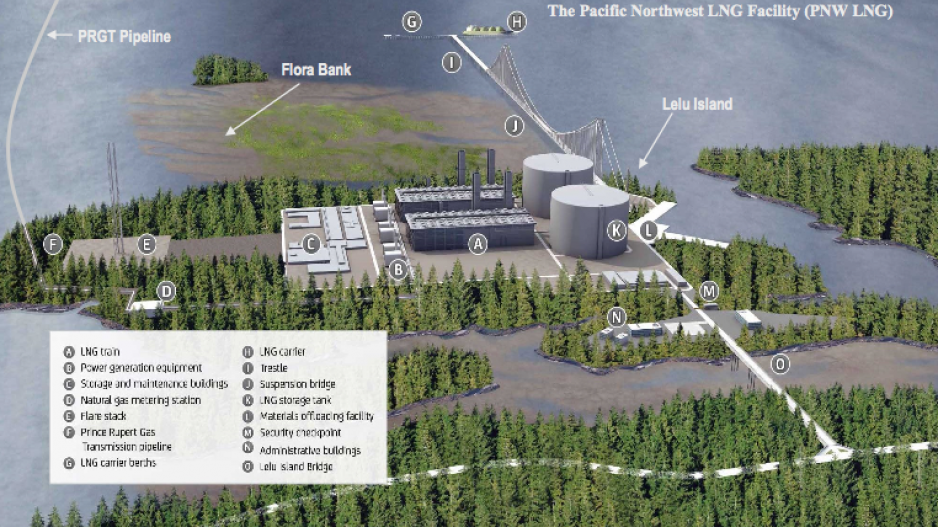The multi-billion-dollar Pacific NorthWest LNG project proposed for Prince Rupert would have “significant adverse environmental effects” on harbour porpoises and in the production of greenhouse gases, but is not likely to have significant adverse effects on fish habitat or other aspects of the environment.
That is according to a draft environmental assessment report released today (February 10) by the Canadian Environmental Assessment Agency (CEAA).
The 257-page draft report is a bit of a mixed bag. On one hand, it says the project “is likely to cause significant adverse environmental effects, taking into account the implementation of the recommended mitigation measures, on harbour porpoise and as a result of greenhouse gas emissions.”
But otherwise, the report concludes, “the project is not likely to cause significant adverse environmental effects taking into account the implementation of the key mitigation measures.”
The main objection to the project from First Nations groups like the Lax Kw’alaams is its potential impact on salmon and salmon habitat.
The LNG plant on Lelu Island poses concerns because of a suspended bridge and pipeline trestle that would pipe liquefied natural gas from the plant on Lelu Island to an offshore loading terminal.
The concern over that piece of the project is that it would have a negative impact on the eelgrass beds of Flora Bank, which is important salmon rearing habitat.
But according to the draft EA, the Department of Fisheries and Oceans is satisfied that the project’s potential negative impact on fish habitat can be mitigated.
“With regard to effects to fish habitat, Fisheries and Oceans Canada advised the agency that, subject to a comprehensive, long-term monitoring program and the implementation of additional mitigation measures, there would be a low potential of significant adverse effects to fish and fish habitat resulting from the presence of the marine terminal,” the report states.
As for climate change issues, the PNW LNG would increase B.C.’s total carbon dioxide emissions by 8.5%, and Canada’s total by 0.75%.
The report is not the final word, but will be finalized following a consultation period with the public and First Nations before a final report is submitted to the federal Minister of Environment and Climate Change Catherine McKenna.




